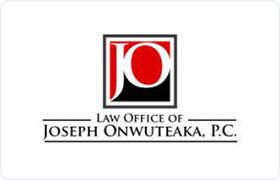Winters Real Estate Other Lawyer, Texas
Sponsored Law Firm
-
 x
x

Click For More Info:
-
Law Office of Joseph Onwuteaka, P.C.
8323 Southwest Fwy Suite 650 Houston, TX 77074» view mapSlip & Fall Accident Fighting Fearlessly For Your Rights
I'm committed to providing experienced and tenacious legal representation. I will fight for the best possible outcome in your case & won't give up, even when things get tough.
800-960-3430
Includes: Commercial Leasing, Commercial Real Estate, Condominiums, Conveyancing, Housing & Urban Development, Premises Liability, Residential Real Estate, Title Insurance
Not enough matches for Winters Real Estate Other lawyer.
Below are all Winters Real Estate lawyers.
Kenneth H. Slimp
Commercial Real Estate, Oil & Gas, Wills, Family Law
Status: In Good Standing Licensed: 46 Years
Karl W. Vancil
Commercial Real Estate, Oil & Gas, Business & Trade, Credit & Debt
Status: In Good Standing Licensed: 37 Years
Billy L. Fisher (Bill)
Real Estate, International, Government, Business
Status: In Good Standing Licensed: 50 Years
Ross L. Jones
Commercial Real Estate, Oil & Gas, Industry Specialties, Wills
Status: In Good Standing Licensed: 63 Years
Nicholas Edward Arrott
Construction, Elder Law, Administrative Law, Credit & Debt
Status: In Good Standing Licensed: 15 Years
Gerald L. Johnson
Commercial Real Estate, Oil & Gas, Industry Specialties, Wills, Energy
Status: In Good Standing Licensed: 48 Years
Christopher Lewis Westbrook
Commercial Real Estate, Real Estate
Status: In Good Standing Licensed: 18 Years
Kyle D. Tatom
Business & Trade, Commercial Real Estate, Public Utilities, Public Schools
Status: In Good Standing
 Joseph Onwuteaka Houston, TX
Joseph Onwuteaka Houston, TX Practice AreasExpertise
Practice AreasExpertise
